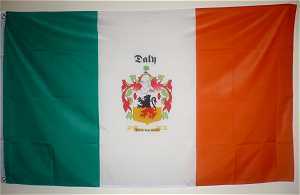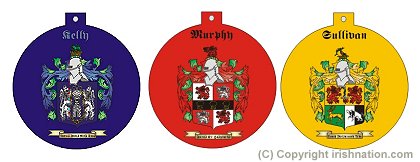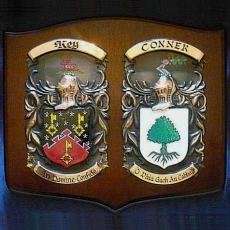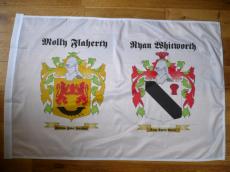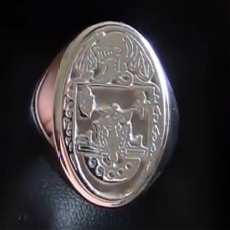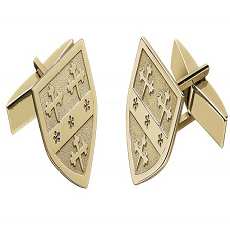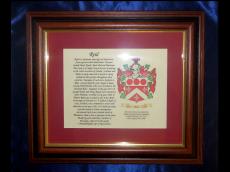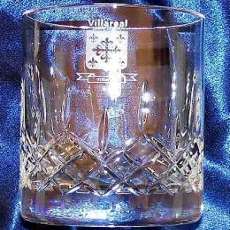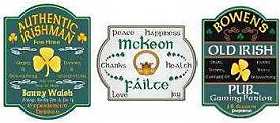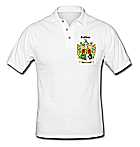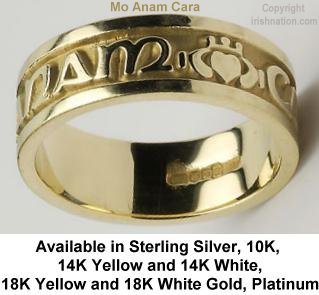IN THIS ISSUE
- News from Ireland
- Dad's Christmas Puddings by Marie O'Byrne
- Irish Christmas Traditions
- Take the Soup - A Story by Mattie Lennon
- Gaelic Phrases of the Month
- Monthly Free Competition Result
Popular Articles from Recent Newsletters:


FOREWORD
Many thanks to Mattie Lennon and Marie O'Byrne for once again offering us two of their fine tales of old Ireland. Both stories make great reads.
Of course all the talk in Ireland is of Christmas with signs emerging that the Irish economy is well on its way back. Attendance at Christmas Fairs is up, trips to Santa in far-flung places are back in vogue and relics from the 'Celtic Tiger' are starting to reappear.
Lets hope we manage any possible good times a bit better than the last time.
Until next month - stay safe!
Michael

P.S.
Please Do Forward this Newsletter to a
friend or relative. If you have a website or Facebook
page or Blog (or whatever!) then you can help
us out by putting a link on it to our website:
www.ireland-information.com
|

NEWS FROM IRELAND
WATER CHARGES WAR NEARING END-GAME
In what can only be described as a victory for militancy and agitation the campaign to have water charges scrapped may be about to declare a final victory.
The hated water charges were forced upon the Irish citizenry as par of the EU/IMF/ECB loans that were foisted on the country in the wake of the economic collapse.
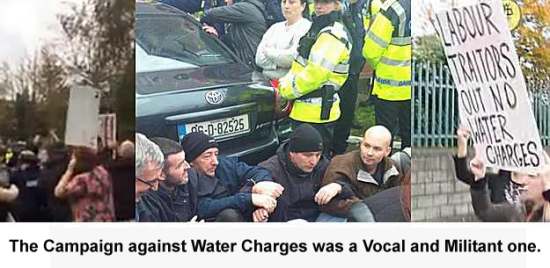 The Fine Gael and Labour Party Government of the time claimed that they had no choice, effectively blaming their European money-lenders, then blaming Fianna Fail and all the while running the gauntlet of an increasingly vocal and militant 'anti-austerity' campaign.
The Fine Gael and Labour Party Government of the time claimed that they had no choice, effectively blaming their European money-lenders, then blaming Fianna Fail and all the while running the gauntlet of an increasingly vocal and militant 'anti-austerity' campaign.
Water Meters were installed around the country at huge expense while protests continued. By the time the requirement for a General Election came around the issue was so hot politically that, although charges were introduced, they were watered down with non-compliance measures not enforced.
The election saw Fine Gael take a battering while the Labour Party was near obliterated.
The current Government led by Fine Gael exists at the largesse of Fianna Fail who could pull the plug at any moment.
No-one wants to touch the issue of water charges so in time-honored fashion the matter was 'kicked down the road' with March 2017 being the latest flashpoint when the suspension of the charges expires and an 'Expert Commission' makes it recommendations.
It looks like water charges will be finally abolished and/or integrated into another tax or charge, possibly the equally hated 'property tax'.
Those that have already paid their water charges are furious and seeking refunds while those who have not continue to say that they will not pay and will battle any court proceedings against them
The only way out for this Government is to issue refunds and/or tax credits to those who have paid their bills, then integrate the charge into some other tax in order to keep their EU masters happy and then quietly hope the issue dissipates.
Dissipates. Or evaporates.
Just like the millions that were spent on installing the expensive Water Meters.
A debacle.
UNEMPLOYMENT DROPS AGAIN IN IRELAND
The rate of Unemployment in Ireland continues to fall. Recent numbers from the Central Statistics Office put the Unemployment Rate at 7.5%, down from over 15% since 2008.
With 2.04 million people recorded in the workforce there is still some way to go to recover to the position in 2008 when 2.16 Million were recorded in employment.
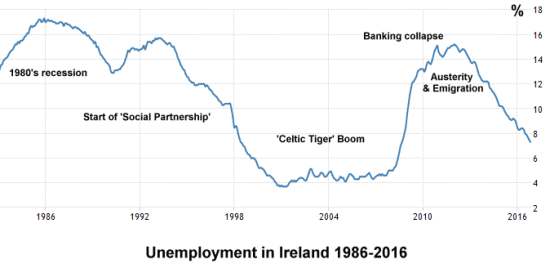 Perhaps more significant than the headline rate is the 'long term unemployed' rate which is down from 5% to 4.2% over the last year.
Perhaps more significant than the headline rate is the 'long term unemployed' rate which is down from 5% to 4.2% over the last year.
Jobs in the Accommodation and Food Services sector and in the Construction sector saw the biggest employment gains, reflecting the resurgence in tourism and the building trades.
Inward migration to Ireland increased by 3,100 people in the year ending April 1916, the first increase since 2009. Another strong indication of the positive direction that the Irish economy is taking.
BIG INCREASE IN IRISH COLLEGE ATTENDANCE
The rate of progression from Secondary Schools to Third Level Colleges and Universities in Ireland is now above 80% for the vast majority of Irish schools.
Most fee-paying schools boast a 100% record while at the other end of the scale those schools in less advantaged areas have less than 20% of students progressing on to Third Level education.
Despite the lack of extra funding that the fee-paying schools enjoy, as many as 58 non-fee-paying schools also boasted a 100% college attendance rate. Which is an incredible achievement for those schools.
The 2013 OECD survey of 25-34 year-olds worldwide found that Ireland had the fourth highest number of citizens who had completed a Third Level course of education. South Korea at 67% and Japan and Canada at 58% each were ahead of Ireland at 51%. Italy was recorded at 23% and Austria at 25%.
|

KEEP THIS NEWSLETTER ALIVE!
FIND YOUR NAME IN OUR
GALLERY OF IRISH COATS OF ARMS

|

DAD'S CHRISTMAS PUDDINGS
by Marie O' Byrne
Not long after our mother had straightened out the house from all the Halloween antics of us eleven children than she had to switch her attention to the biggest holiday of the year: Christmas.
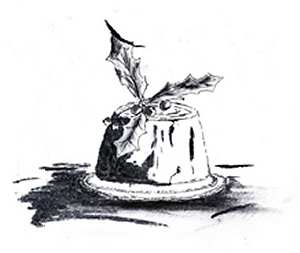 In particular, her mind went to the making of the Christmas pudding and the Christmas cake. First things first, she was very fond of saying and so she had started out in early November with a long list of the ingredients she needed: bags of dried fruit, spices and chopped almonds etc., and she headed in on the bus to the supermarket in Bray. If you got to the shops early enough all the shelves would still be full to the brim of the red and green candied peel and chopped cherries and raisins. But sometimes the shops would run out of these ingredients, spelling disaster for my mother who had to sit by the fireside answering Dads serious inquiries.
In particular, her mind went to the making of the Christmas pudding and the Christmas cake. First things first, she was very fond of saying and so she had started out in early November with a long list of the ingredients she needed: bags of dried fruit, spices and chopped almonds etc., and she headed in on the bus to the supermarket in Bray. If you got to the shops early enough all the shelves would still be full to the brim of the red and green candied peel and chopped cherries and raisins. But sometimes the shops would run out of these ingredients, spelling disaster for my mother who had to sit by the fireside answering Dads serious inquiries.
'Do you have everything in for the pudding yet, Carmel?'
I remember when she would have us children run from shop to shop to look for extra sultanas' or chopped almonds, even Aunt Peggy, who lived with us, would also scurry around and help out with securing the many ingredients. It was a daunting undertaking for Mum to have to buy all this additional food on top of the huge amount she purchased for the family every week. However, once she finally had everything in Dad took it over from there.
He had the job of actually making all the puddings for the family, and he loved it. First he washed all the fruit to soften it and then he steeped it in whiskey in the big plastic red basin. It was left overnight in the front porch under a dish cloth. The next day all the other ingredients would be mixed in and blended well; but they had to be done in order using five separate bowls. That was his important secret to making the best pudding. Dad was from a military background and he liked order - everything had to be done in order.
On Sundays, sometimes called 'Stir Up Sunday', we children gathered around the big table under the light that hung from the cord in the middle of the room and we all took a turn at mixing the pudding before it was divided up into the bowls for boiling. Everyone, including Aunt Peggy had to take a turn and make a wish as we stirred the pudding. That was Dads tradition!
I'm sure Mum and Dad wished for good health and world peace and important things like that but we children always wished for presents from Santa. I have a strong recollection of wishing many times for a pair of white knitted tights. How I envied the girls in my class with their beautiful white tights!
However, Mum knew better. She was well aware of how her six girls played outside in the fields behind the house, climbing trees and gates and crossing rivers, and in her motherly wisdom always made sure that there were green and navy tights for us under the Christmas tree. She knew white tights didn't stand a chance with her girls!
Dad had to be careful not to make the mistake of boiling the puddings too early, as sometimes all the 'little tastes' from the thirteen of us and our visiting Aunt's took care of a whole pudding in less than ten minutes! Since the steaming stage took eight hours it had to be paced out just right. We could not have them ready too early or too late but they did need time to ferment under the glass of whiskey that Dad very generously poured over the top of them.
I remember Mum used to hide and guard the well wrapped boiled puddings in all kinds of places and warn us not to dare touch them if we located them. She hid them in pots with lids closed tightly and way back in the corner of the drinks cabinet under the television, once I found one on top of the wardrobe in the front room. We knew better than to ever touch them!
On Christmas Day we all got to enjoy the gorgeous pudding served steaming hot with freshly whipped cream after dinner. Mum and Dad would sit back and savor every bite with a glass of Sherry by the fire. It was as close to heaven as they could get!
'Mmmm! Very Good!', they would nod back and forth to each other in between the delicious bite-fulls.
The puddings were proudly shared with all the visitors over the Christmas season. Joe and Molly our neighbours across the road were always first on our list and much debate ensued about the texture, flavor and moistness. However, there was never a doubt in our minds - we believed that our Dad made the best Christmas puddings in the whole of Ireland!
Lucky for all of us, our eldest sister Pauline has carried on the tradition using Dads old recipe.
Christmas just wouldn't be the same without them!
---
Marie O'Byrne is the author of 'Christmas Eve in Ireland - an ebook:
https://play.google.com/store/books/author?id=Marie+O%27Byrne
and more Stories at:
http://www.marieobyrne.com/Page_2.html
|

IRISH CHRISTMAS TRADITIONS
Ireland has a wide number of Christmas traditions that are steeped in the Gaelic and Catholic heritage of the country.
THE WREN BOY PROCESSION
The Wren Boy Procession has been revived in recent years with parades being held on St. Stephens Day in Sandymount in Dublin and other locations. There are several legends regarding the 'wren boy'.
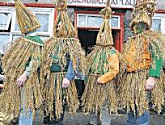
One such tale tells of a plot in a village against some British soldiers during Penal times. The soldiers were surrounded and were about to be ambushed when a group of wrens pecked on their drums raising the alarm. The plot failed and thus the wren became known as 'The Devil's Bird'.
To commemorate this deed a procession takes place where a pole with a holly bush is carried from house to house and families dress up in old clothes and with blackened faces. In ancient times an actual wren bird would be killed and placed on top of the pole.
It is possible that the very Irish tradition of visiting houses of friends and relatives on St. Stephens Day traces its origin to these events.
THE CANDLE IN THE WINDOW
A tradition that was very widespread in the 1970's but which seems to be dying out somewhat and especially in urban areas is the 'candle in the window'. Symbolically the candle represented a welcome to Joseph and Mary as they wandered in search of lodgings. The candle indicated to strangers and especially to the poor that there may be an offering of food in the house within.

During the Penal Times in Ireland Catholic priests were forbidden to perform Mass so the candle acted as a covert signal that the occupier was a Catholic believer and that mass could be held on the premises.
MARY
Mary the mother of Jesus was especially revered in Ireland at Christmas. There are many traditions involving girls named Mary which at one time was by far the most popular female name in the country. The candle in the window was often to be lit by a girl named Mary and only extinguished by her. The removal of decorations in January were also often to be punctuated by a visit from a Mary.
THE LADEN TABLE
The centre-piece of the Christmas holiday in Ireland is the Christmas Dinner. After the often lavish meal the kitchen table was again set and on it was placed some bread and milk and the table adorned with the welcoming candle. If Mary and Joseph, or any wandering traveller, happened by then they could avail of the hospitality.
LITTLE CHRISTMAS
All Christmas decorations are usually taken down and put away on 'Little Christmas' (January 6th.). It is considered very bad luck to remove the decorations and Christmas tree before this date.

IRISH CHRISTMAS DECORATIONS
The widespread practice of placing a ring of Holly on a front door started in Ireland. Holly was one of the main plants that flourished at Christmas time in Ireland and gave the poorer population means with which to decorate their homes.
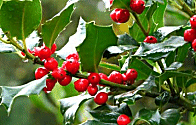
MORE MODERN TRADITIONS
Modern Ireland has changed vastly from the times when these Irish Christmas traditions flourished and have often been replaced with newer more secular ones. St. Stephens Day is still regarded as a day to visit family and friends but is also a great sporting day with horse-racing, football and a myriad of other sports taking prominence.
Many workers take the entire week off between Christmas Day and New Years Day with many businesses completely closing down during this time.
Midnight Mass on Christmas Eve is also very well attended and is often adorned with a choir, the Church with a Manger and Nativity scene.
A Christmas Day swim is practised in certain parts of Ireland with perhaps the most famous being at the 'Forty Foot' tiny beach in South Dublin.
THE TRADITIONAL GAELIC GREETING
The Gaelic greeting for 'Merry Christmas' is:
'Nollaig Shona Duit'
......which is pronounced as 'null-ig hun-a dit'.
|


TAKE THE SOUP
A Story By Mattie Lennon
Up to today no senior Wicklow football team has ever graced the hallowed sod of Croke Park on the penultimate Sunday of September. Even Mick O Dwyer couldn't do anything for us. Imagine letting soccer and rugby into Croke Park before Wicklow got a crack at an All-Ireland final, and then the Queen... and we almost had Obama.
But Wicklow men and sons of Wicklow men have played for many another county's winning team.
Such was the case in 1928. It was the first year of the Sam Maguire Cup and Kildare met Cavan in the final.
One of the Kildare forwards was of Valleymount parentage and, of course, the locality claimed him as its own. Now, money wasn't plentiful in the West Wicklow of 1928. The Wall Street crash was in 1929 but we were well ahead of them. The people in our area couldn't afford to travel to Dublin for a match. But they were a resourceful people. And they did a very clever thing. They took up a collection and appointed one man, a sort of an emissary, to go to the match and bring back the information. The man selected as representative was a farm-labourer, Matt Colley, who had a phenomenal memory, a good eye and ear for detail and was a good storyteller (sometimes with a little bit of embellishment).
Though times were hard subscriptions surpassed expectation. With the proceeds Matt boarded the steam Tram, in Blessington, and set out on his journey to Terenure or Roundtown as it was called at the time (where the tram terminated). He walked, at a leisurely pace into the city centre and in the unfamiliar surroundings of the main thoroughfare of the Metropolis he spotted an impressive building; The Gresham Hotel.
When he entered the posh foyer of the Gresham, of course the head porter and others were amused by his mountainy walk.
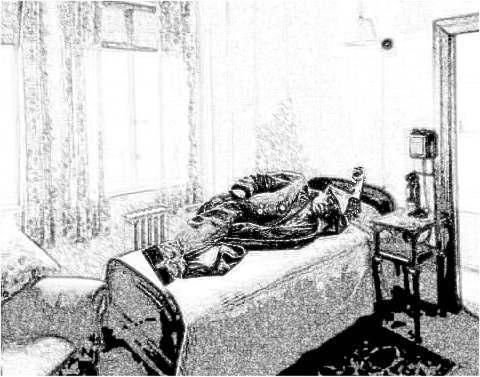
He took his seat in the dining room but didn't consult the Menu. With all due respect to the man, he had a near photographic memory, was a gifted raconteur but the written word meant very little to him.
A liveried waiter with notebook, and pencil poised, materialised at his elbow.
'Soup Sir?'
'I don't want any soup', says Matt.
'But the soup of the day, Sir is the Chef's...'
'Amn't I after telling ye I don't want soup.'
'All right Sir, the main course...'
The waiter goes on the list the many choices, only to be told:
'I don't want any o' that, I want a feed o' bacon an' cabbage an' a few good floury spuds. Have ye any bacon an' cabbage?'
Taken aback and getting annoyed the waiter says:
'I'll see what we have in the kitchen.'
'I don't want to know what ye have in the kitchen, I want bacon, cabbage and potatoes.'
The waiter now decides to teach this Russ-in-Urbe a lesson. He brings out a large serving dish (like the big Willow-pattern dishes that Matt's mother kept on the top shelf of the dresser). It was heaped to capacity.
Matt ate and he ate and he ate - and then he ate more.
He ambled upstairs and spotted, through an open door, a double bed. It wasn't near match time so he stretched out on the bed - face down. Of course he was asleep in seconds.
Now - as luck would have it, sometime later, the male guest in the adjoining bedroom 'took a bit of a turn.'
The Doctor was called and promptly arrived accompanied by a nurse. Seeing the prostrate figure of Matt, with a belly like a poisoned pup, he made a rapid diagnosis.
'I know what's wrong with this man' says he.
Without any further instruction the nurse left and reappeared quickly with a red rubber hose, tapered on one end and a funnel on the other. The necessary garments were removed, a large white enamel jug of warm, soapy, water was produced and a certain medical procedure got under way.
Halfway through the irrigation process Matt woke up. And would you blame him?
The match was over. He had no information for his financiers. He hadn't done what he was sent to do.
He headed for Terenure and the tram but he wasn't walking too well.
On the tram he met a few fellows from Brittas and Manor Kilbride who filled him in on the main points of the game.
By Tallaght he knew that Kildare been awarded ten frees in the first half and that the score at half time was one two to three points in favour of Kildare.
Jobstown saw him rehearsing his 'report.' Cavan won the toss and played with the wind, from the Railway end, for the first half.
Smith of Cavan got the ball at the throw-in and passed it to Higgins who was fouled.
Devlin of Cavan scored the first point after twenty minutes of play.
Fitzpatrick of Kildare was injured and spent a long time on the ground.
Joe Loughlin of Kildare was injured and replaced by Dan Ryan.
As the tram passed the brick-works in Tinode, Kildare was playing with the wind in the second half.
When Matt alighted at the tram-sheds in Blessington, in his head the match was over. Cavan was two goals and five points and Kildare was two six and the final whistle blew.
There were men there to meet him from Kylebeg, Lacken, Blackrock, Lugnagun and Ballinastockan.
It was like a press conference. They were shooting questions at him from all sides.
'Who won Matt?'
'Was it a good game Matt?'
'What was the score Matt?'
'How did our man fare Matt?'
During a lull in the interrogation he put up his hand:
'I'll tell yez all about the match in a minute, But first I want to tell yez this, If any o' yez ever goes to Dublin and yer in a place called the Gresham Hotel, if they ask ye d' ye want soup, for Christ sake take it. For if you don't they'll put it in a big enamel jug an' they'll get a length o' hose an' a tundish. They'll take down your trousers an' savin' yer presence they'll administer it in the most undignified manner!'
|


GAELIC PHRASES OF THE MONTH
| PHRASE: |
Siochain na Nollag inar measc |
| PRONOUNCED: |
she-a-con nah nullig in-arr mask |
| MEANING: |
May the peace of Christmas be among us |
| PHRASE: |
Le gach Dea-Ghui i gcomhair na Nollag is na hath bhliana |
| PRONOUNCED: |
leh gock daya-gwee ih goer nah nullig iss nah awt bleena |
| MEANING: |
With every good wish for Christmas and the new year |
| PHRASE: |
Bia is deoch i gcomhair na Nollag; éadach nua i gcomhair na Cásca |
| PRONOUNCED: |
bee-ah iss djuk ih goer na nullig - aid-jock new-ah i goer nah cass-kah |
| MEANING: |
Food and drink for Christmas - new clothes for Easter |
View the Archive of Irish Phrases here:
http://www.ireland-information.com/irishphrases.htm
|

COMPETITION RESULT
The winner was: katrinka@cox.net
who will receive the following:
A Single Family Crest Print (US$24.99 value)
Send us an email to claim your print, and well done!
Remember that all subscribers to this newsletter are automatically entered into the competition every time.
|

I hope that you have enjoyed this issue.

by Michael Green,
Editor,
The Information about Ireland Site.
http://www.ireland-information.com
Contact us
Google+

(C) Copyright - The Information about Ireland Site, 2016
P.O. Box 9142, Blackrock, County Dublin, Ireland Tel: 353 1 2893860
|
|
|
|
|












